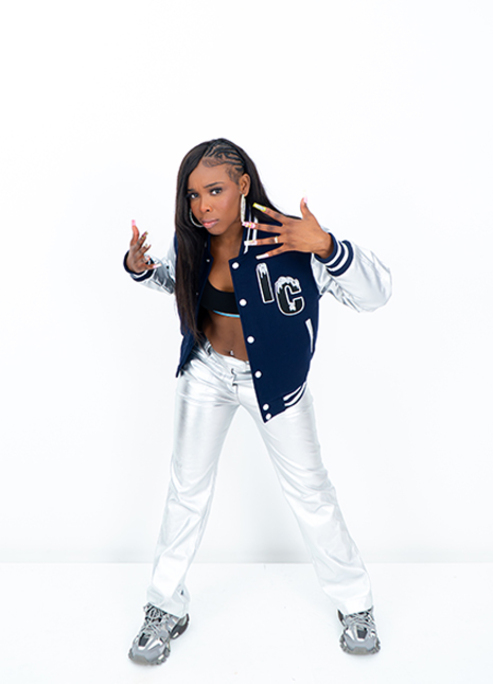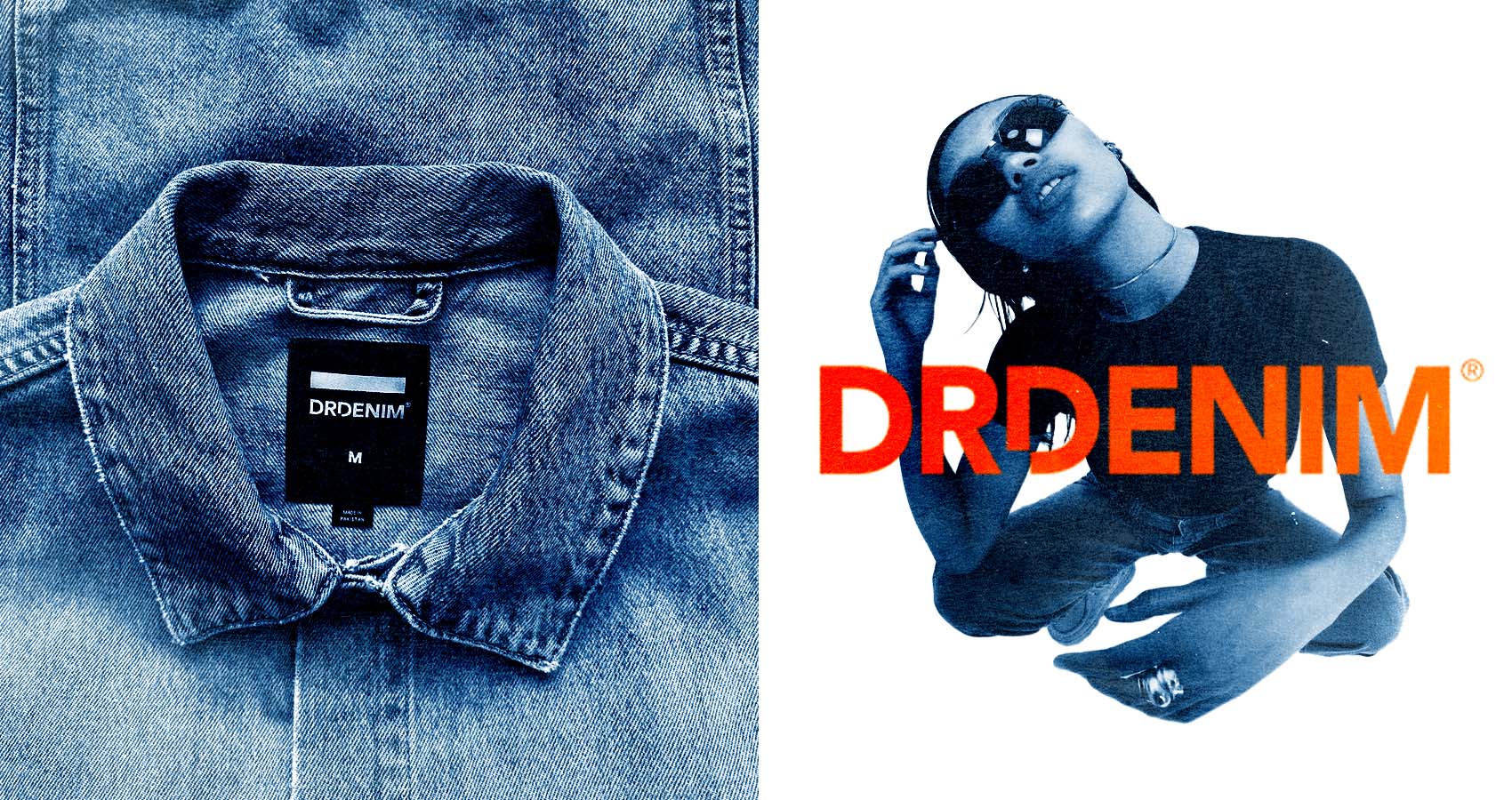
What's it like running a Denim Brand for 20 Years?
Dr. Denim founder Alex shares inspiration, obstacles, and future aspirations in sustainable denim.
Congratulations on Dr. Denim's 20th anniversary! In this interview, we delve into the journey of Dr. Denim, a Swedish brand born out of passion for denim and commitment to quality. From humble beginnings to global recognition, we chat with Co-Founder Alexander Graah to learn more about the inspiration, challenges, and aspirations behind the brand's success.
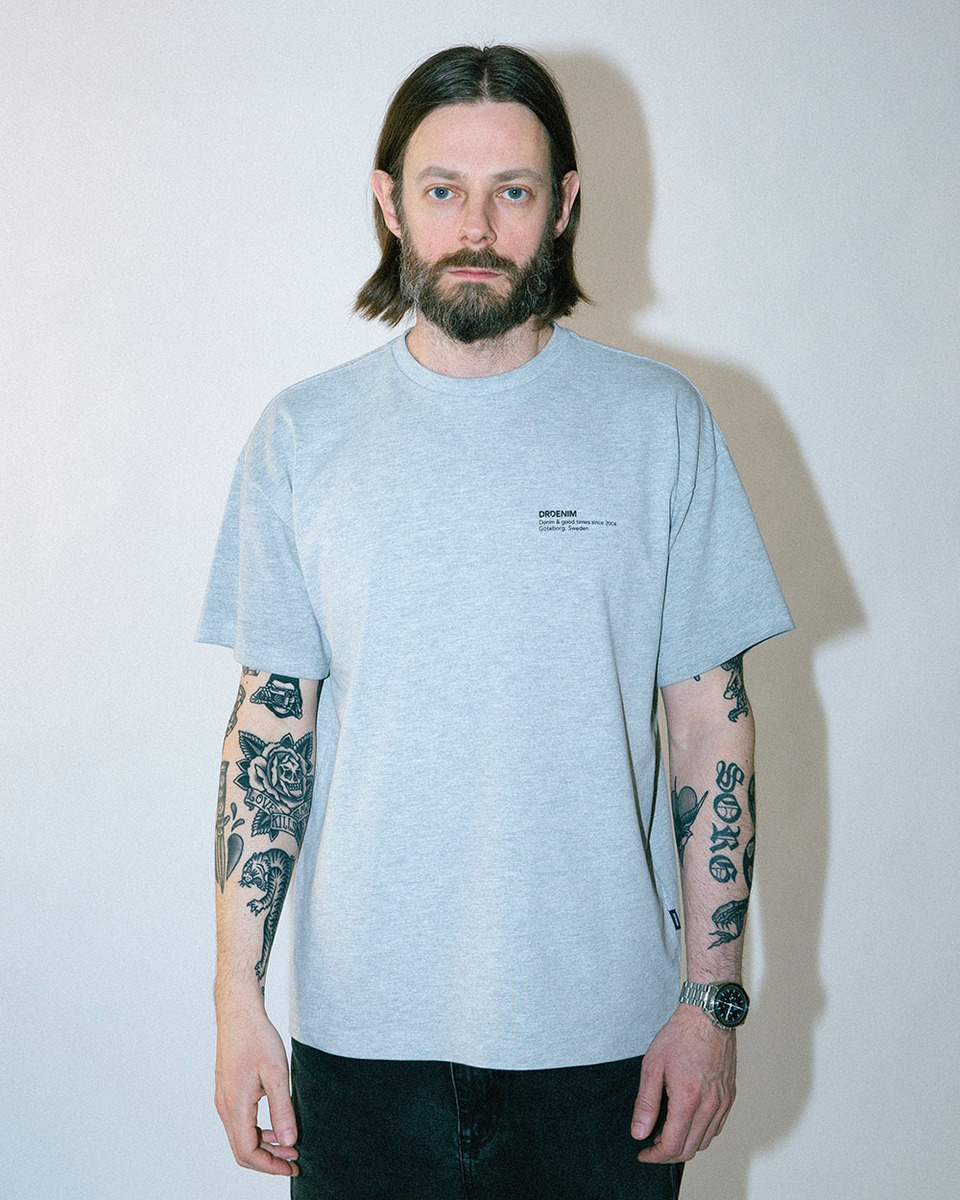
Alex, along with his brother, founded the company in 2004.
Congratulations on Dr. Denim's 20th anniversary Alex! Looking back, what inspired you and your brother to establish Dr. Denim back in 2004?
Dr. Denim was born in Gothenburg, Sweden, as a true garage brand. Having grown up in the 90s, a great decade in and around denim manufacturing, and having collected vintage denim out of sheer passion, there was probably only ever one path for us. Back then, denim was either overpriced and over-designed, or it was cheap and bland, so we wanted to do something about that. And here we are 20 years later, doing the exact same thing.
Starting a denim brand must have been challenging. What were some of the biggest obstacles you faced during the early years of Dr. Denim?
To be perfectly honest, every day is still a challenge! But back then, a lot of it revolved around finding ways to overcome the fact that we didn’t really have any financing, we didn’t have much in the way of volume to bring to suppliers, and it takes time to build a reputation with retailers. So, we had to make people believe in what we were doing as much as we believed in it ourselves. Sometimes it was just the little things, like showing up at our local bank branch to tell them that we were starting a jeans brand and it was going to be great, and we just needed their services to get started - only to be met with a very skeptical frown!
How has Dr. Denim evolved since its inception in terms of its vision and mission?
We are very true to our roots, but I can confidently say that we're better at doing what we do today than ever - partly because we're still driven by the same core idea. Our vision is to be recognized worldwide for our refined and broad-appeal denim, and appreciated as a pillar of global streetwear. Our mission is to produce garments of the highest quality, with a particular focus on our true forte, denim, for global consumers who appreciate responsible, long-lasting garments in ultra-modern yet timeless styles at affordable price points. While it's inevitable to take a few detours along the way when you've been around as long as we have, these things have always held true. But I also think I can confidently say that we've stepped up our game quite a lot over the decades.
Dr. Denim emphasizes craftsmanship over trends. Can you share more about how this philosophy has shaped the brand's identity and products?
There’s a timelessness running through our collections. When we develop our products, we put an enormous amount of effort into the things you don’t immediately see - the aspects that create a great fit, make the jeans last longer, and contribute to lasting value. We take pride in the enduring appeal of our styles, as we are decidedly against fast fashion. We create garments that last longer to reduce waste. So, you'll find a great degree of similarity between our drops. You'll find that Dr. Denim garments don’t immediately feel dated, and hopefully, you’ll find that they serve you well for a long period of time.
The latest collection, SS24 - Good Times Around The World, reflects a message of positivity. What inspired this theme, especially considering the challenging times we've been facing globally?
We wanted to convey a message of positivity in the difficult times we find ourselves in - something hopeful to work towards, something to cherish in the little things every day because ultimately, we believe humanity is capable of good.
Could you elaborate on the design process behind the SS24 collection, particularly the choice of prints and denim styles?
Our process is very personal, deeply rooted in what we and our team like and want to wear. It’s a collaborative process where we evaluate what we have, debate areas for improvement, test products we’ve made in the past, and, of course, keep an eye on what we believe people expect from us. It can often be a slow process because we have a whole team challenging every decision we make, but we push ourselves and challenge our assumptions. We start developing prototypes way ahead of our deadlines, we wear-test, and we iterate tirelessly. We always expect better of ourselves and want to push the envelope in terms of what is possible, and that's what keeps us going.
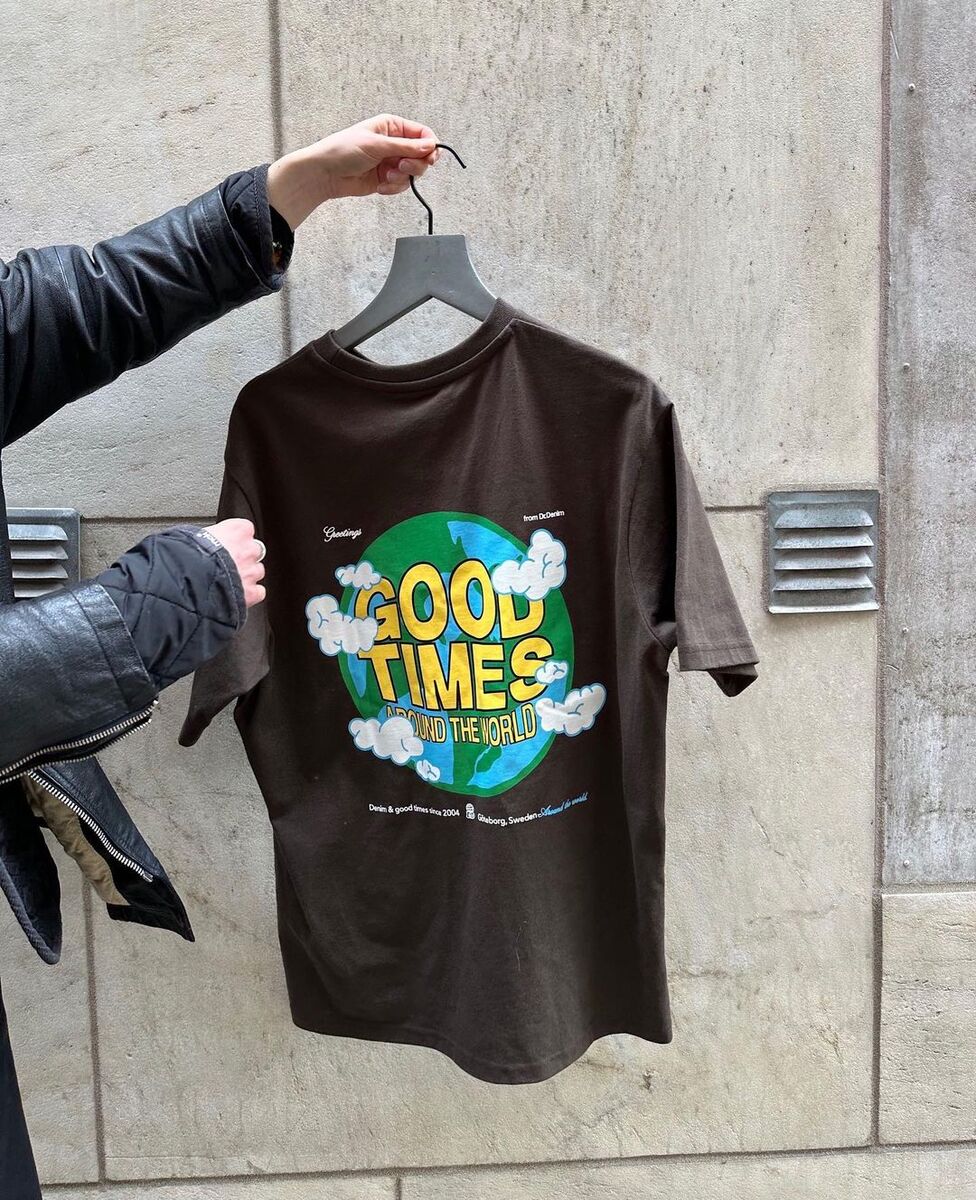
Dr. Denim is known for its commitment to sustainability and durability. How does the brand integrate these values into its production processes and materials sourcing?
Sustainability and durability are very broad concepts. It comes down to everything from working with fibers such as recycled cotton and ensuring the recycling process has a smaller footprint than fresh cotton, but also taking into account regenerative farming practices and similar considerations when using fresh cotton. We work with modern fabric mills and manufacturers where waste is handled responsibly and energy sources leave as little impact as possible - for example, we collaborate with one manufacturer that has its own windmills. When it comes to durability, it’s partly a matter of working with high-quality long staple fibers where the yarn doesn’t disintegrate as quickly as it would with cheaper yarn containing shorter fibers. We reinforce stress points on the garment, use quality pocket lining that lasts through years of use, and more. And, of course, we test the products ourselves, making improvements when we find something we’re not entirely satisfied with, etc.
As a family-owned business, how has the dynamic between you and your brother influenced the growth and direction of Dr. Denim over the years?
We have our similarities and we have our differences, and that has helped us strike a healthy balance. To us, this is more than just a job, it’s our way of life and part of who we are, and I think that is a central component in explaining why Dr. Denim has remained a force in affordable quality denim for decades during which various brands have come and gone, and sometimes come back again (hello Cheap Monday, we’ve missed you!). We’ve always been in fashion for the long haul, and we’ve avoided bringing in external funding that would have made us dependent on external parties who have to deliver quarterly performance and growth at any cost. I suppose you could say we’re approaching things in a bit of an old-school way, and we’re perfectly happy with that.
In what ways does Dr. Denim engage with its community, both locally and globally?
This won’t come as a surprise, but mostly through social media. Having said that, it also happens on a smaller scale through friends, and friends of friends. I mean, we have artists who have been wearing our jeans since the 00s, and we’re still in touch, still refreshing their wardrobe every now and then. We’ve built lasting friendships that started with a pair of jeans. And sometimes, it can be as simple as me spotting someone wearing our jeans in the street and thanking them for their support. To this day, we love the fun and quirky interactions we have with our community; it never gets old.
With the rise of fast fashion, how does Dr. Denim differentiate itself and maintain its stance on producing quality, long-lasting denim pieces?
Fast fashion brands work by dropping insane amounts of clothing at cutthroat price levels, and there’s no way you can do that and simultaneously offer a quality product with a lot of thought put into it. We do the opposite. Our collections aren’t huge, allowing us to put a whole other level of effort into the things we make. Ultimately, it’s our deep commitment to this approach that sets us apart. It’s just a polar opposite mindset, really. Where fast fashion encourages you to wear new stuff on every occasion, for every TikTok post, we don’t - we assume that we have to make the most long-lasting garments we possibly can, and we want to see you wear them for a long time, to cherish the natural wear & tear that comes with heavy use. Our garments are not made to be forgotten about or thrown out after a few uses.
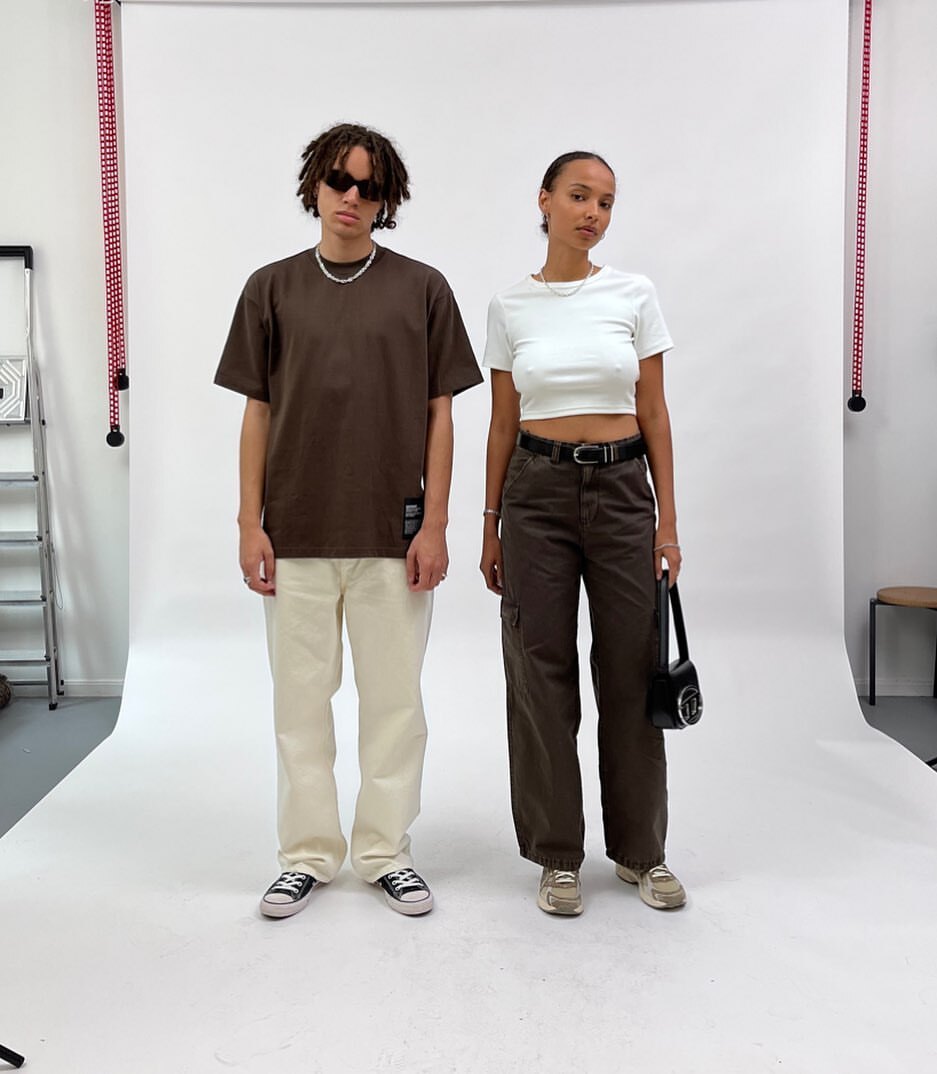
The SS24 collection introduces new denim styles like cargo jeans and stone-washed pieces. What inspired these additions, and how do they fit into Dr. Denim's overall aesthetic?
While classic five pocket jeans are naturally front and center of what we do, we also develop jeans inspired by workwear, functional wear, and utility. It just fits into our look and what we like to wear, so that’s one part of it.
As for stone washes, we see them almost as an art form. Anyone can ask a manufacturer to make a simple stone wash, but getting it right requires a trained eye and relentless attention to detail. Beautiful stone washes are part of what denim is, and so it’s something that’s very central to us. We aim to step up our game every season and develop washes that exceed your expectations.
Could you share some insights into the challenges and opportunities Dr. Denim has encountered while expanding into 20 countries over the past two decades?
It is a completely different landscape out there today compared to when we started. If we had only been denim designers and not cared equally about everything around it, about steering the ship, we wouldn’t be around. I mean, we’ve gone from working with small multi-brand stores only to working with the biggest e-commerce sites, which adds an enormous amount of complexity to deliveries, systems, and the like. Add to that everything from the pandemic to the Evergreen ship that clogged the Suez Canal a couple of years ago, a flooded factory back in 2012 that halted most of our production for months, as well as daily issues that we just take for granted by now. It really is a battle. Doing this sort of thing for a living is not for everyone.
As for opportunities, the shrinking world that came with social media and e-commerce has allowed us to build a fan base more globally in a way that would have been impossible when we started out. I mean, the U.S. is the single largest market for our own e-com site, and that’s just organic growth, people coming across us as a brand in one way or another and supporting our mission.
Collaboration is becoming increasingly popular in the fashion industry. Has Dr. Denim explored any partnerships or collaborations, and if so, what were the outcomes?
Well-timed question! We dropped a small collab with Wet Dog Denim on March 25. They’ve customized a small series of our denim pieces, and it looks absolutely fantastic. Most of it was pre-booked before even being released on their site. We love being able to do something with another denim company based in our hometown. In the past, we’ve done things with Pezzo Pizza, also based in Gothenburg. We like doing small, intimate collabs like these, where creative exploration and mutual support are the key ingredients.
Looking ahead, what are your aspirations for Dr. Denim as it enters its third decade in the fashion industry?
Denim is a serious business. Life isn’t. We are going to continue doing the exact same thing we always have, only better, and we’ll continue approaching denim as we always have. We’ll continue having a good time while doing it. We will expand our global presence, having recently brought in an agency to represent us in the U.S. to build our network of retailers. Building the U.S. is going to be a huge milestone for us and not something we do overnight. Above all, we’re going to cement our position as the go-to brand for quality denim at our affordable price point - something we feel is unique and increasingly relevant in a world where there is too much consumption of disposable fast fashion.
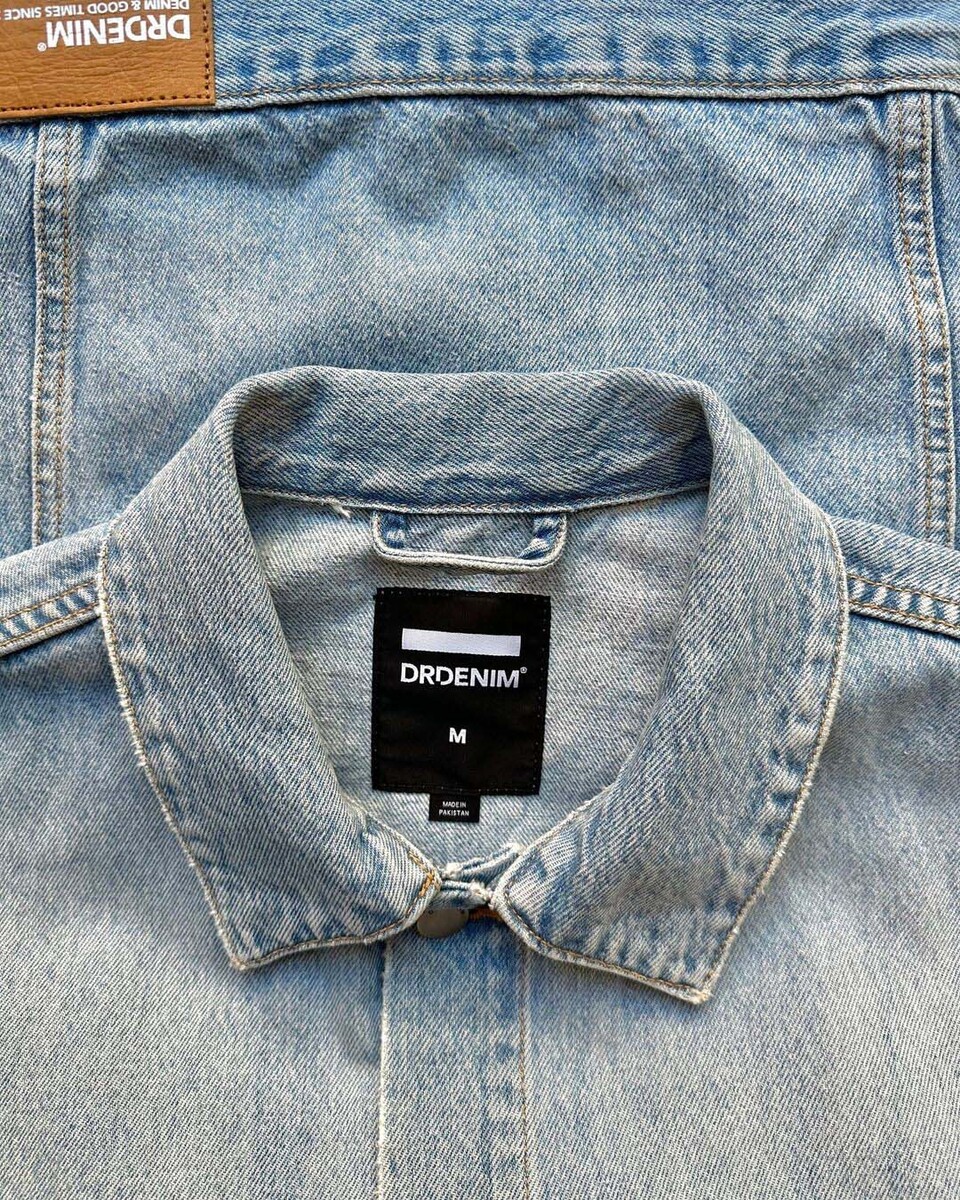
Finally, how do you envision Dr. Denim's role in shaping the future of sustainable fashion and denim culture?
We are a small player in the grand scheme of things, so we can’t change the world. But what I hope we can do is inspire people to think about how they consume. We can inspire others in our industry to think about sustainability in a broader sense - not just as something that revolves around slapping on a label stating ‘organic cotton’ to increase sales. And we will continue to test ourselves, explore new technologies and processes, and work hard to alleviate our carbon footprint.
To find out more about Dr. Denim visit Drdenim.com



